These days credit is everything, and without good credit a mortgage loan can be tough to qualify for. Mortgages and credit scores go hand in hand, and not only do they help you get an approval, but they can help you get the best interest rates available today. Being able to obtain a mortgage at one percentage point less could result in significant savings of $5,000 or more. In order to understand why mortgages and credit scores are so important, there are a few things you should know.
Conventional Mortgages and Credit Scores
Most conventional lenders in 2010 required that borrowers had a credit score of 680 or higher in order to qualify for a loan that was 90% of the home’s value. Most FHA lenders require a borrower to have a credit score of 640 or higher, so you can see the differences between the two. Conventional mortgage loans require anywhere from 5% to 30% down for a purchase loan, depending on the credit score as well, whereas FHA programs allow borrowers to put as little as 3.5% down with a credit score of 640 or higher. There are major differences between these loans, but it’s important to understand what your credit is like so that you know what type of mortgage you can qualify for. In general, the higher your credit score, the better the mortgage rate.
Your Credit Report
It is important that prior to refinancing or buying a home, that you get a copy of your credit report so that you can review it in detail and make sure that everything on it is accurate. Finding errors on your credit report and getting it fixed could change your offers significantly. Checking your credit report can also alert you to any new accounts that were opened in your name that you were not aware of. Also, it is important to double check all of your pay histories on all accounts you have. As you pay your bills keep documentation showing that you paid them so that if anything needs to be corrected you have the proof that payment was made. All lenders love to see on time payments, and lenders are nervous right now that mortgages won’t be paid on time.
FHA also views your credit report very seriously, and uses it as a glimpse into your thoughts on how bills should be paid and whether or not they are important to you. FHA does have a different approach to underwriting loans, so this is why their guidelines on credit scores are a little different as well. Even when a borrower has no score, FHA can use what they call “compensating factors” to help pull the loan together. This could be pay histories from utility bills, cell phone bills and other recurring payments.
The top credit score tier ranges between 740 and 850, and when lenders see these types of scores they are going to offer the lowest interest rates. Traditionally, scores of 620 or less were viewed as subprime, and with higher rates for these borrowers it would be wise to clean up your credit so that you can save money on any loan you get.
